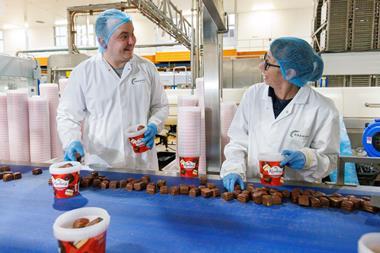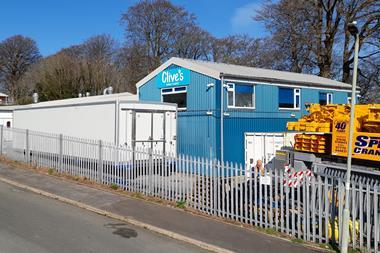A number of industry organisations have opened up about the proposed action set out in yesterday’s Budget, as revealed by Chancellor George Osborne in the House of Commons.
Helen Dickinson, director general at the British Retail Consortium
“The support that was secured for customers wasn’t matched by direct help for high street businesses. Economic growth is the key to deficit reduction. This was the Chancellor’s opportunity to maximise retailers’ contribution to re-establishing growth by keeping more money in customers’ pockets and leaving retailers with more money they can invest.
“Moves on the income tax threshold and fuel duty are great for consumers’ confidence and ability to spend, which will help retailers and the wider economy. But, pressing on with a third-successive substantial business rates rise is very disappointing. Freezing rates would have made a real difference to our troubled high streets and the communities that rely on them.
“It’s now even more important that the government delivers quickly on its existing commitment to reassess the formula for determining future years’ rates increases.”
Melanie Leech, director general, Food and Drink Federation
“Many of the measures in today’s Budget and the recently adopted ‘single pot’ proposals from Lord Heseltine support our vision shared with government to grow the sector by 20% by 2020.
“The new employer allowance will significantly lower food and drink SMEs’ national insurance bills and give those businesses greater certainty when considering whether to invest in growth while the announcement of a further cut in corporation tax and the cancellation of the rise in fuel duty planned for September will be welcomed across the industry.
“FDF also welcomes the support for the Agri-tech strategy, one of 11 key sectors that will benefit from £1.6bn of funding. Implementing the strategy through a whole-chain approach lead by senior figures from the across the food industry will increase its reach and chances of success.
“The increase to the above-the-line research and development tax credit to 10% also sends a clear message that the UK welcomes investments in innovation. However for SMEs, which form the backbone of the UK’s food and drink sector, the scheme remains complex and inaccessible. FDF will continue to argue for more flexibility in the definitions of innovation and the way they are applied so that these businesses can accelerate their growth while playing a full part in improving public health and reducing their impacts on the environment.”
John Longworth, director general, British Chamber of Commerce
“We are at an unprecedented moment in economic history, and the government should be doing everything in its power to get the economy moving. Many of the Chancellor’s measures were targeted at larger corporates, and those that will benefit smaller companies will not take effect until 2015, which is too late. We need urgency, scale and delivery today.
“If Britain is in a global race, as the Chancellor said in his speech, our political elite needs to act accordingly, and pull out all the stops to support enterprise, jobs, wealth creation and exports. Business will appreciate many of the Chancellor’s measures, and his personal commitment to fiscal discipline and support for enterprise, but will wish he had been more radical in the pursuit of growth.”
James Lowman, chief executive, The Association of Convenience Stores
“The Budget does not include any radical changes that will transform confidence amongst everyday entrepreneurs, such as local shop owners. But action on national insurance, card payments and beer duty are positive steps that will make a difference.
“The Chancellor has failed to act on business rates and missed an opportunity to undertake the radical reform needed to encourage investment in high streets up and down the country. We welcome the Employment Allowance which will help local shops to take on more employees.”
































No comments yet